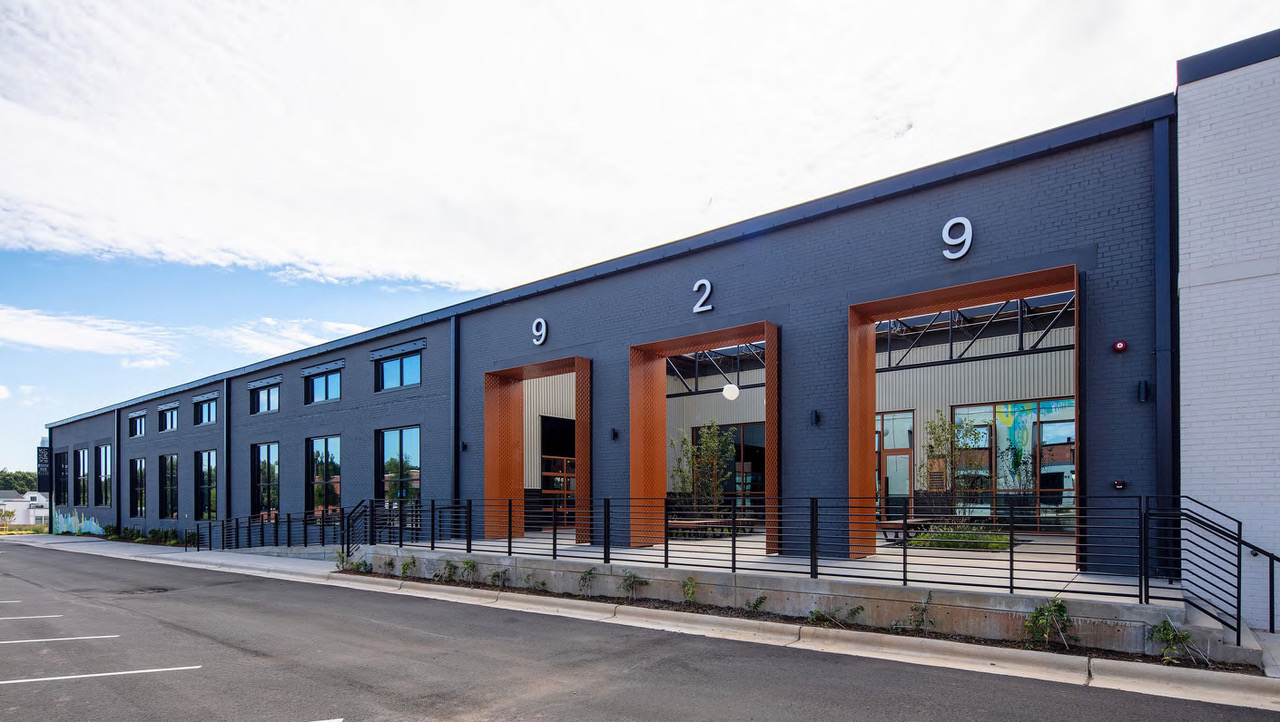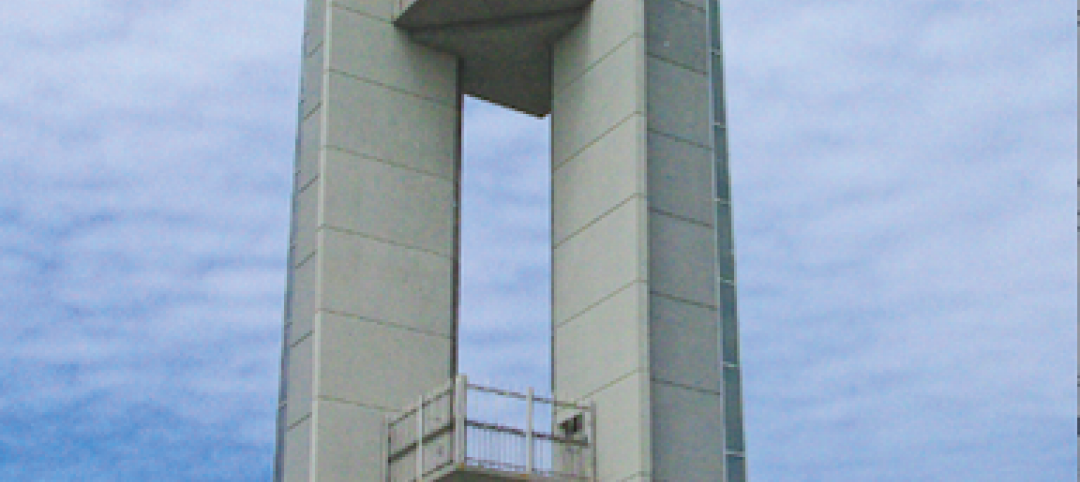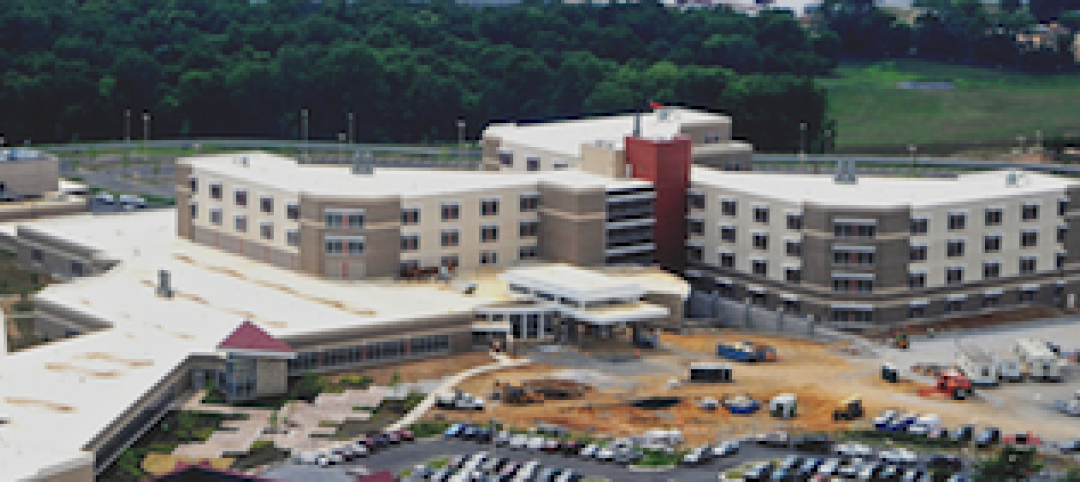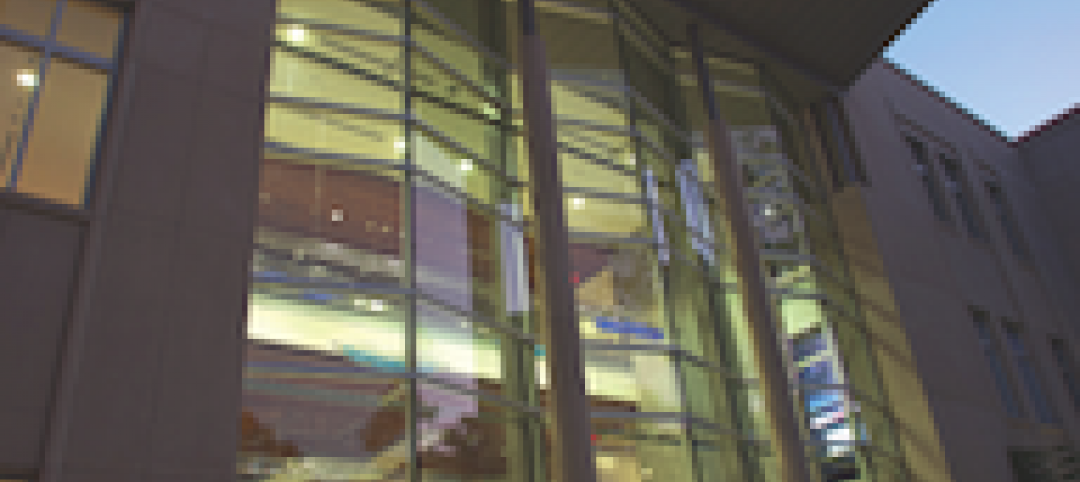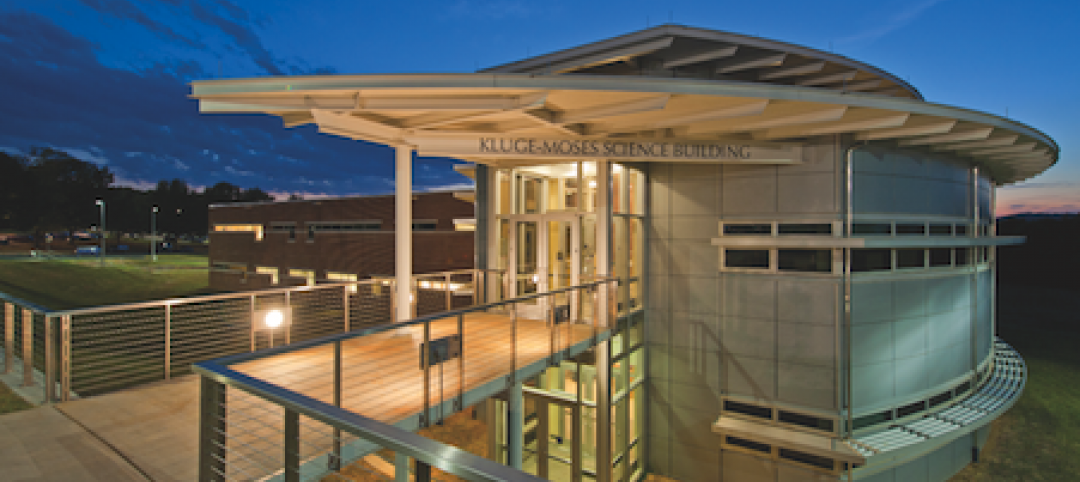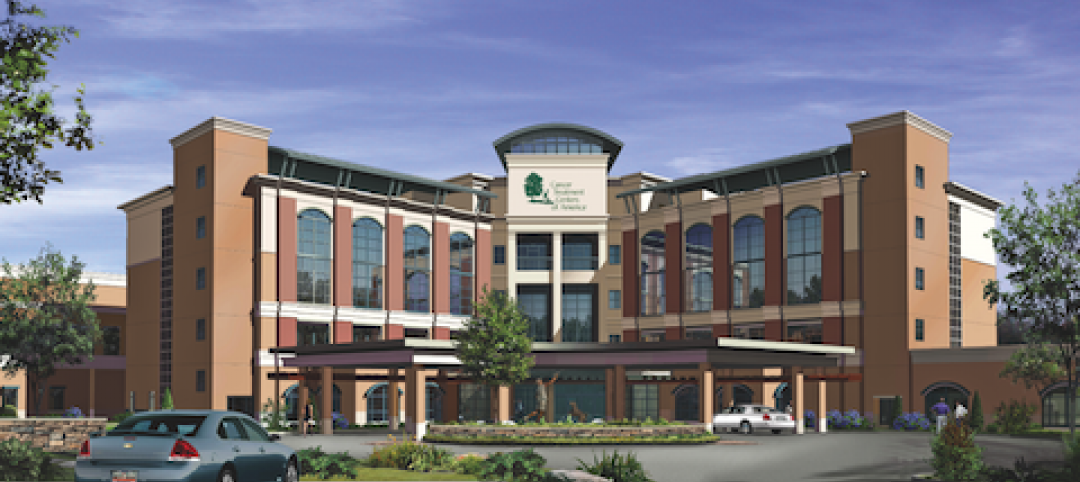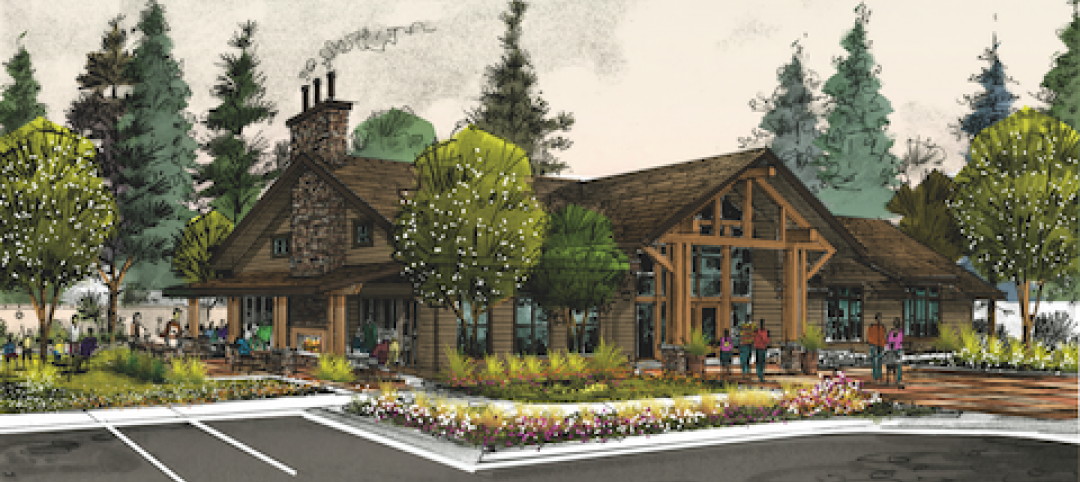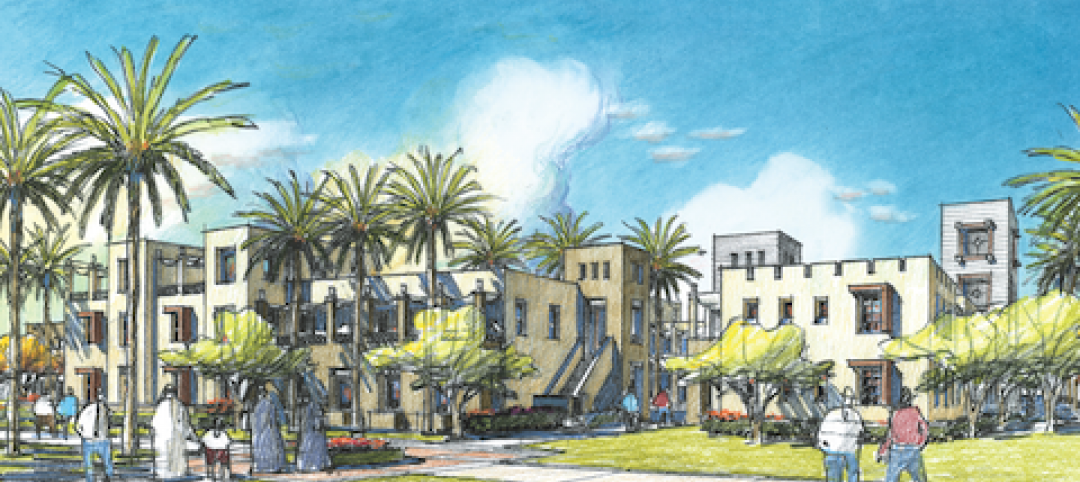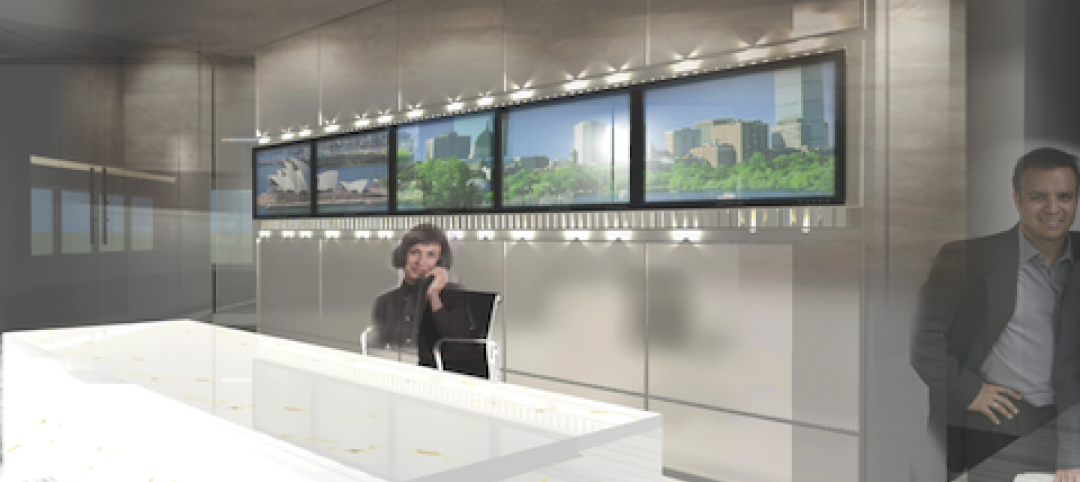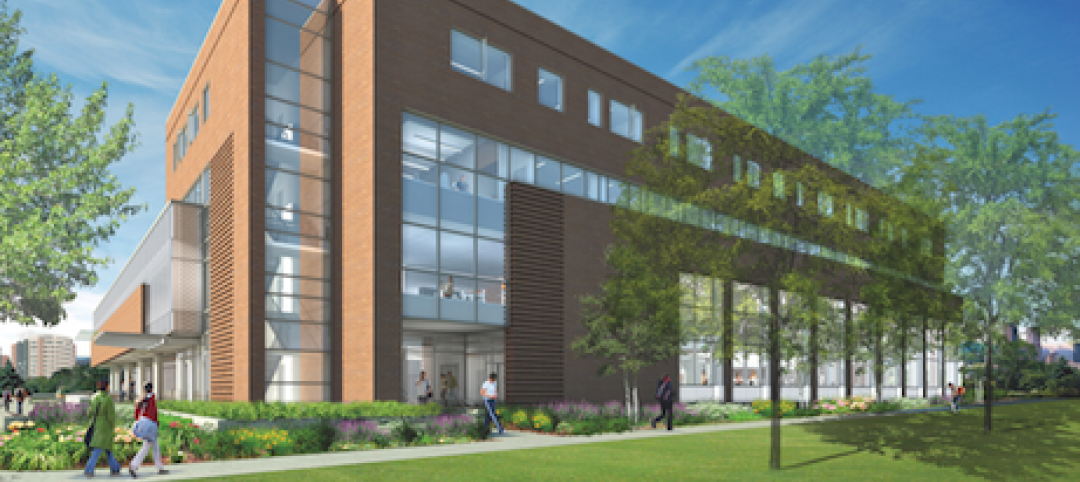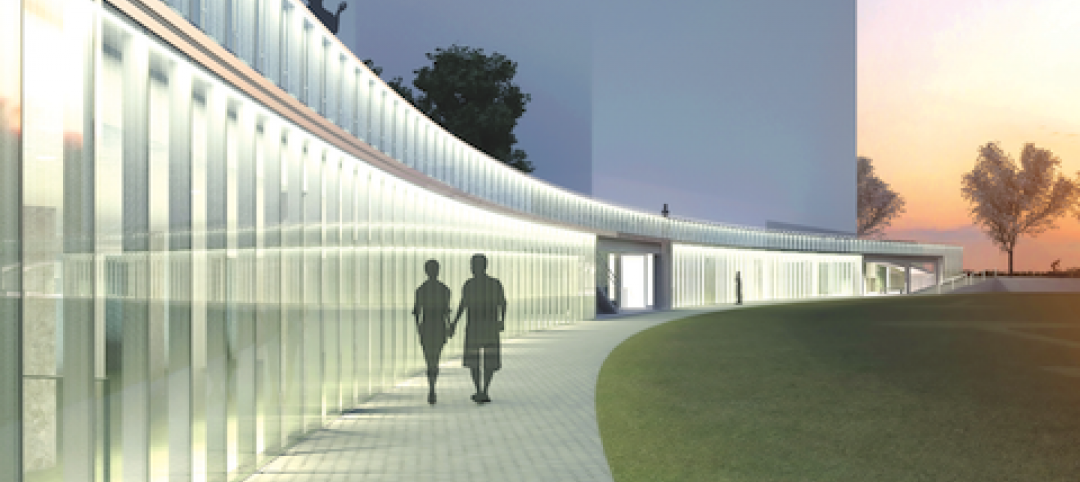Swinerton, the national general contractor, expanded into the Southeast U.S. in 2018. Since then, the firm’s Carolinas Division has generated at least $359 million in revenue from commercial construction projects that have run the gamut from corporate interiors and multifamily to healthcare and mass timber builds.
Of that total, Swinerton’s Carolinas Division is on pace to generate $120 million in revenue in 2023 alone. Among its projects nearing completion is the adaptive reuse within a former warehouse building in West Charlotte, N.C.’s Lower Tuck mixed-use development for office space: a $2.8 million renovation to create a 28,000-sf, two-story space that houses an international nonprofit disaster relief organization; and a nearly $1 million 9,000-sf expansion for an existing tenant, the tool manufacturer Positec, that adds offices, a conference room, and a break room.
These two upgrades were performed by the division’s Special Projects team. Each of Swinerton’s 20 offices nationwide has its own Special Projects crews, which allow the firm to position itself as a “community based GC” that is run like a boutique business, says Jason Hlewicki, Director of Special Projects for the Carolinas Division.
What constitutes a “special project,” however, is a little amorphous. Hlewicki says his special projects team is not separate from the division’s other employees. Nor is a project deemed “special” because of its size or cost: Hlewicki says his team has completed a renovation for a local restaurant group in 56 days, and has also worked on 100,000-sf $40 million jobs.
While special projects run across Swinerton’s practices, their designation “depends on the project’s characteristics and makeup,” he explains. Examples include commercial interiors, off-hours work, medical office building interiors, classroom renovations, and sports complexes.
Division serves a growing region
Hlewicki says that having a special projects team within a division allows Swinerton to be nimble and to pivot when needed, partly by pairing “the best possible staff with the project.” Another competitive advantage, he says, includes Swinerton being a self-performing GC whose crews are made up of its employees. (Swinerton is employee-owned.)
The Carolinas Division completes between 20 and 30 special projects annually, and therefore it deals with a lot of different AEC firms and developers. (Third & Urban is the developer of the Lower Tuck project.) it’s been Hlewicki’s experience that special projects allow Swinerton more room for creativity, especially when the firm is brought on early as part of the project’s design-build team.
The Carolinas have enjoyed a steady influx of people and businesses in recent years, a trend that’s expected to continue going forward. Hlewicki says demand for his firm’s services, both for new builds and renos, “is moving in an exciting direction.” Those services include Swinerton’s Facilities Solution program, a national platform that provides maintenance to existing clients using dedicated crews. “This keeps Swinerton top of mind with our customers,” says Hlewicki.
Related Stories
| Oct 13, 2010
Tower commemorates Lewis & Clark’s historic expedition
The $4.8 million Lewis and Clark Confluence Tower in Hartford, Ill., commemorates explorers Meriwether Lewis and William Clark at the point where their trek to the Pacific Ocean began—the confluence of the Mississippi and Missouri Rivers.
| Oct 13, 2010
Maryland replacement hospital expands care, changes name
The new $120 million Meritus Regional Medical Center in Hagerstown, Md., has 267 beds, 17 operating rooms with high-resolution video screens, a special care level II nursery, and an emergency room with 53 treatment rooms, two trauma rooms, and two cardiac rooms.
| Oct 13, 2010
Campus building gives students a taste of the business world
William R. Hough Hall is the new home of the Warrington College of Business Administration at the University of Florida in Gainesville. The $17.6 million, 70,000-sf building gives students access to the latest technology, including a lab that simulates the stock exchange.
| Oct 13, 2010
Science building supports enrollment increases
The new Kluge-Moses Science Building at Piedmont Virginia Community College, in Charlottesville, is part of a campus update designed and managed by the Lukmire Partnership. The 34,000-sf building is designed to be both a focal point of the college and a recruitment mechanism to get more students enrolling in healthcare programs.
| Oct 13, 2010
Cancer hospital plans fifth treatment center
Construction is set to start in December on the new Cancer Treatment Centers of America’s $55 million hospital in Newnan, Ga. The 225,000-sf facility will have 25 universal inpatient beds, two linear accelerator vaults, an HDR/Brachy therapy vault, and a radiology and imaging unit.
| Oct 13, 2010
Apartment complex will offer affordable green housing
Urban Housing Communities, KTGY Group, and the City of Big Bear Lake (Calif.) Improvement Agency are collaborating on The Crossings at Big Bear Lake, the first apartment complex in the city to offer residents affordable, eco-friendly homes. KTGY designed 28 two-bedroom, two-story townhomes and 14 three-bedroom, single-story flats, averaging 1,100 sf each.
| Oct 13, 2010
Residences bring students, faculty together in the Middle East
A new residence complex is in design for United Arab Emirates University in Al Ain, UAE, near Abu Dhabi. Plans for the 120-acre mixed-use development include 710 clustered townhomes and apartments for students and faculty and common areas for community activities.
| Oct 13, 2010
HQ renovations aim for modern look
Gerner Kronick + Valcarcel Architects’ renovations to the Commonwealth Bank of Australia’s New York City headquarters will feature a reworked reception lobby with back-painted glass, silk-screened logos, and a video wall.
| Oct 13, 2010
New health center to focus on education and awareness
Construction is getting pumped up at the new Anschutz Health and Wellness Center at the University of Colorado, Denver. The four-story, 94,000-sf building will focus on healthy lifestyles and disease prevention.
| Oct 13, 2010
Community center under way in NYC seeks LEED Platinum
A curving, 550-foot-long glass arcade dubbed the “Wall of Light” is the standout architectural and sustainable feature of the Battery Park City Community Center, a 60,000-sf complex located in a two-tower residential Lower Manhattan complex. Hanrahan Meyers Architects designed the glass arcade to act as a passive energy system, bringing natural light into all interior spaces.


